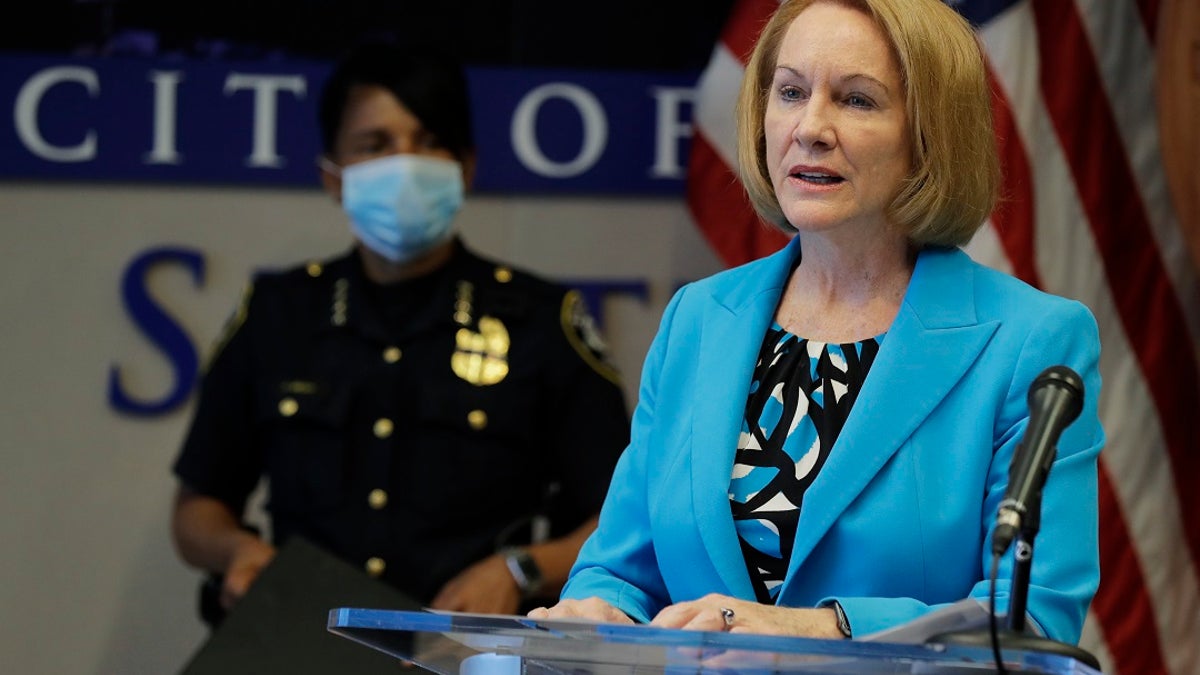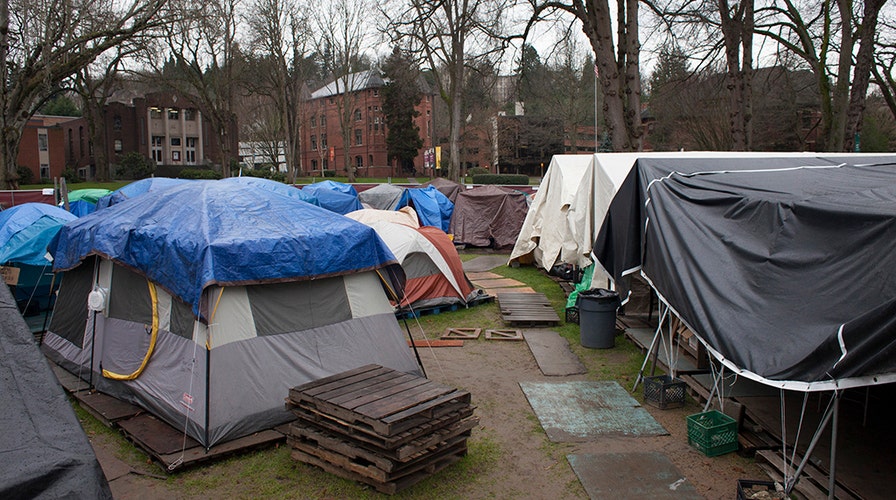Fox News Flash top headlines for December 12
Fox News Flash top headlines are here. Check out what's clicking on Foxnews.com.
Seattle's City Council is mulling a new criminal code regulation that would make it the first municipality in the nation to excuse misdemeanor crimes if they can be linked to poverty, addiction or mental disorders.
The proposal excludes misdemeanors related to domestic violence and impaired driving.
JASON RANTZ: PORTLAND AND ANTIFA'S OCCUPIED ZONE – IT'S CHAZ, THE SEQUEL. HOW WILL IT END?
Proponents like Anita Khandelwal, the top public defender for King County, which includes Seattle, say the current system isn't working for both offenders and victims.
“It’s meeting nobody’s needs,” she argued, according to KUOW. “This is not that we don’t care about the business community or about people who have experienced harm. It is that we know that this process – this processing of human beings through the system – is harmful to our clients and again very racially disproportionate, and also not getting business owners what they need either.”
Khandelwal also suggested the creation of a public fund for restitution, to compensate theft victims even if the offender cannot pay them.
However, opponents argue codifying the policy would open the proverbial floodgates.
“It sends this powerful signal that as city government, we don’t really care about this type of criminal behavior in our city,” former Seattle City Councilmember Tim Burgess told reporters.
Crime has been up in the Pacific Northwest metropolis since this summer's Capitol Hill Occupied Zone protests, which saw a 525% spike, according to Democratic Mayor Jenny Durkan.
The Emerald City's homeless population has grown by over 5% since 2019, according to recent King County data. At least 26% of those tallied are living with addiction or mental health problems.

Seattle Mayor Jenny Durkan, right, speaks, Monday during a news conference at City Hall in Seattle. Durkan and Police Chief Carmen Best, looking on at left, were critical of a plan backed by several city council members that seeks to cut the police department's budget by 50 percent. (AP Photo/Ted S. Warren)
As record-setting homicides continue, the Seattle Police Department is facing a critical shortage both in officers and funding.
Another 33 officers left the force over the past two months, according to reporting from KTTH Radio host Jason Rantz.
In a Friday interview on "America's Newsroom," Rantz told host Trace Gallagher that it's important to focus on the "greater context" of "what's happening in Seattle."
"We have this culture of lawlessness. We have a prolific offender problem where pretty much the same 100 or so individuals keep breaking the law, not seeing any punishment, and then doing the same thing over and over and over again," he explained. "And so, all you're doing is making it easier for those people to continue that behavior.
"And, the fear is, of course, you know, 'Does this only apply to Seattle residents?'" Rantz asked. "And, if not, does that mean someone can come from outside of the region who is destitute, who is low income, [and] break a whole bunch of laws knowing that if you do it in Seattle, you're not going to get in any trouble?"
CLICK HERE FOR THE FOX NEWS APP
In an October letter, Seattle City Attorney Pete Holmes wrote that should the City Council decide to go forward with the plan, it should focus on creating a poverty defense, though "random attacks on strangers are simply unacceptable."
Documents from a Tuesday briefing say the council would be required to specify whether the rule would apply solely to someone committing a misdemeanor to meet immediate basic needs.
The council will continue to work on the proposal in 2021.















































